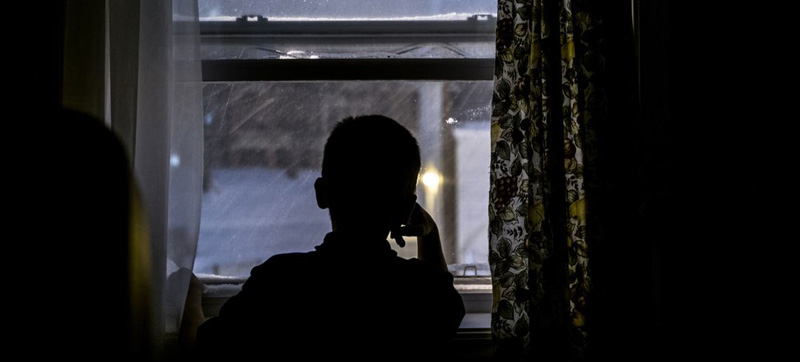 Poverty
Poverty
Sharp rise in child poverty was registered across 40 of the world’s richest countries between 2014 and 2021: UNICEF
A sharp rise in child poverty was registered across 40 of the world’s richest countries between 2014 and 2021, according to a new report published on Wednesday by the UN Children's Fund's global research centre, Innocenti.
The new findings from the UNICEF research wing focus on Member States of the Organization of Economic Cooperation and Development (OECD) and the European Union (EU).
Analysing child support policies among the group of developed economies, the report finds that despite an overall decrease in poverty of nearly eight per cent over the seven year period, there were still more than 69 million children living in households earning less than 60 per cent of the average national income.
Among those faring best in tackling child poverty are Poland and Slovenia, followed by Latvia and the Republic of Korea. In contrast, some of the richest countries in the report are lagging behind.
“The impacts of poverty on children are both persistent and damaging,” said Innocenti’s Director, Bo Viktor Nylund.
As he explained, for most children this means that they may grow up without enough nutritious food, clothes, school supplies, or a warm place to call home. It prevents the fulfilment of rights and can lead to poor physical and mental health.”
Lifetime of consequences
The consequences of poverty can last a lifetime, the report’s authors warn.
Children who experience poverty have less chance of completing school and hence earn lower wages as adults. In some countries, a person born in a deprived area is likely to live eight to nine years less than a person born in a wealthy area, the report reveals.
It also highlights huge inequalities. Across 38 countries with available data, children living in a single parent family are over three times as likely to be living in poverty as other children. Children with disabilities or from minority ethnic/racial backgrounds are also at higher-than-average risk.
According to the findings, 2012 to 2019 saw largely stable economic growth among the countries surveyed, presenting an opportunity to recover from the impacts of the 2008-10 recession.
Surprising differences
However, while several countries reduced child poverty, some of the wealthiest saw the biggest reversals.
The report also shows that countries with similar levels of national income, such as Slovenia and Spain, experienced stark differences in child poverty rates - 10 per cent and 28 per cent respectively.
Children’s living conditions can be improved regardless of a country’s wealth, the report notes. For example, Poland, Slovenia, Latvia, and Lithuania – not among the richest OECD and EU countries – have achieved important reductions in child poverty: minus 38 per cent in Poland and minus 31 per cent in the other countries.
Meanwhile, five higher income countries – the United Kingdom (+20 per cent) and France, Iceland, Norway, and Switzerland (all around +10 per cent) – saw the greatest increases in the number of children living in households experiencing financial hardship since 2014.
Cash benefits go a long way
To eradicate child poverty, the study authors explain, governments and stakeholders should urgently expand social protection for children, including child and family benefits to supplement families’ household income.
The also need to ensure all children have access to quality basic services, like childcare and free education; create employment opportunities with adequate pay and family-friendly policies and adapt measures to the specific needs of minority groups and single-headed households.
“Cash benefits have an immediate effect in alleviating poverty. Decisionmakers can support households by prioritizing and increasing expenditure on child and family benefits,” added Nylund, inviting governments to examine the policies that have proved successful over time.
Support Our Journalism
We cannot do without you.. your contribution supports unbiased journalism
IBNS is not driven by any ism- not wokeism, not racism, not skewed secularism, not hyper right-wing or left liberal ideals, nor by any hardline religious beliefs or hyper nationalism. We want to serve you good old objective news, as they are. We do not judge or preach. We let people decide for themselves. We only try to present factual and well-sourced news.







